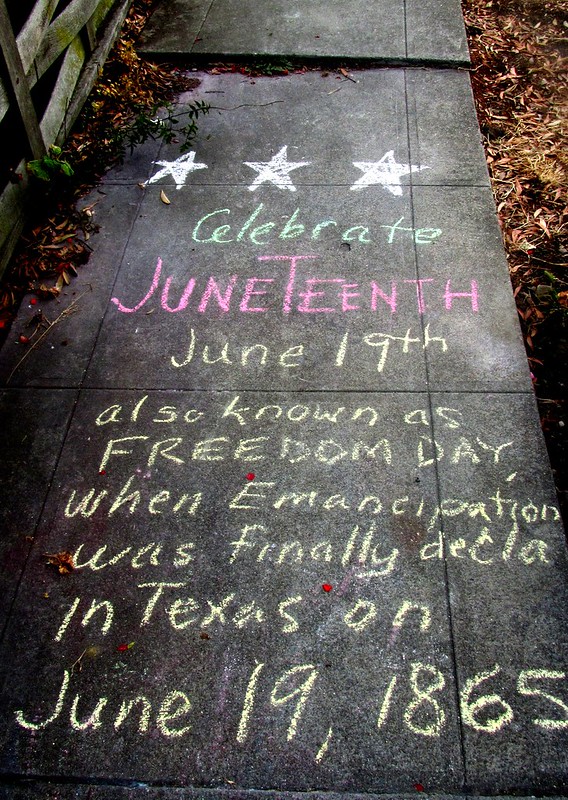Last Updated on May 20, 2022
In 2021, June 19th, also known as Juneteenth, Juneteenth Independence Day, Freedom Day, and Emancipation Day, became the newest Federal holiday. Although it has long been celebrated in African-American communities, it commemorates a history that has been marginalized and still remains largely unknown to the wider public. We strive to share high-quality podcasts from reliable sources that can empower educators to fill in gaps in their curriculum and incorporate a multitude of perspectives and voices, including those of students. You can use the historical information and resources below to spark meaningful, academic conversations with your students about Juneteenth. For some instructional strategies, check out our webinar on how to use our podcasts to bring SEL & diverse voices into the classroom.
The History of Juneteenth

TJ Gehling
On June 19, 1865, two and a half years after the Emancipation Proclamation was signed, federal troops arrived in Galveston, Texas to take control of the state and ensure that all enslaved people were freed. Juneteenth commemorates that important event. A 2018 Vox article titled “Why celebrating Juneteenth is more important now than ever,” explains that the holiday represents “how freedom and justice in the U.S. has always been delayed for Black people.”
On January 1, 1980, Juneteenth became an official state holiday in Texas through the efforts of Al Edwards, an African-American state legislator. The successful passage of this bill marked Juneteenth as the first emancipation celebration granted official state recognition. Edwards has since actively sought to spread the observance of Juneteenth all across America. A staff writer at The Atlantic eloquently captured the significance of the day:
“I think it should be considered the truth of American independence. July 4 only represents when white men in this country were made free. If you think about the masses, Juneteenth represents the true fulfillment of what people believe to be that declaration, and what people believe to be freedom in this country.”
Podcasts & Resources for Juneteenth
Our podcast lesson on Juneteenth, Tulsa, and Teaching History discusses why so many Americans are unaware of the significance of the holiday. To learn more about Juneteenth from a primary source, listen to an interview with Laura Smalley, a Texas woman born into slavery and freed when federal troops came to Galveston. Many people have tried to increase national recognition of Juneteenth. In 2017, 90-year-old Opal Lee walked around the country in order to raise awareness and urge the U.S. government to recognize Juneteenth as a holiday.
We encourage educators to learn more about this historic day and consider ways to incorporate it into the curriculum. Culturally responsive teaching and inclusion of diverse perspectives and multicultural resources in the curriculum are important for all students, not just students of color. It is important to teach Black history year-round, and not only the injustices, but also the resilience, the victories, and the many cultural and societal contributions of African Americans to the United States and the world.
